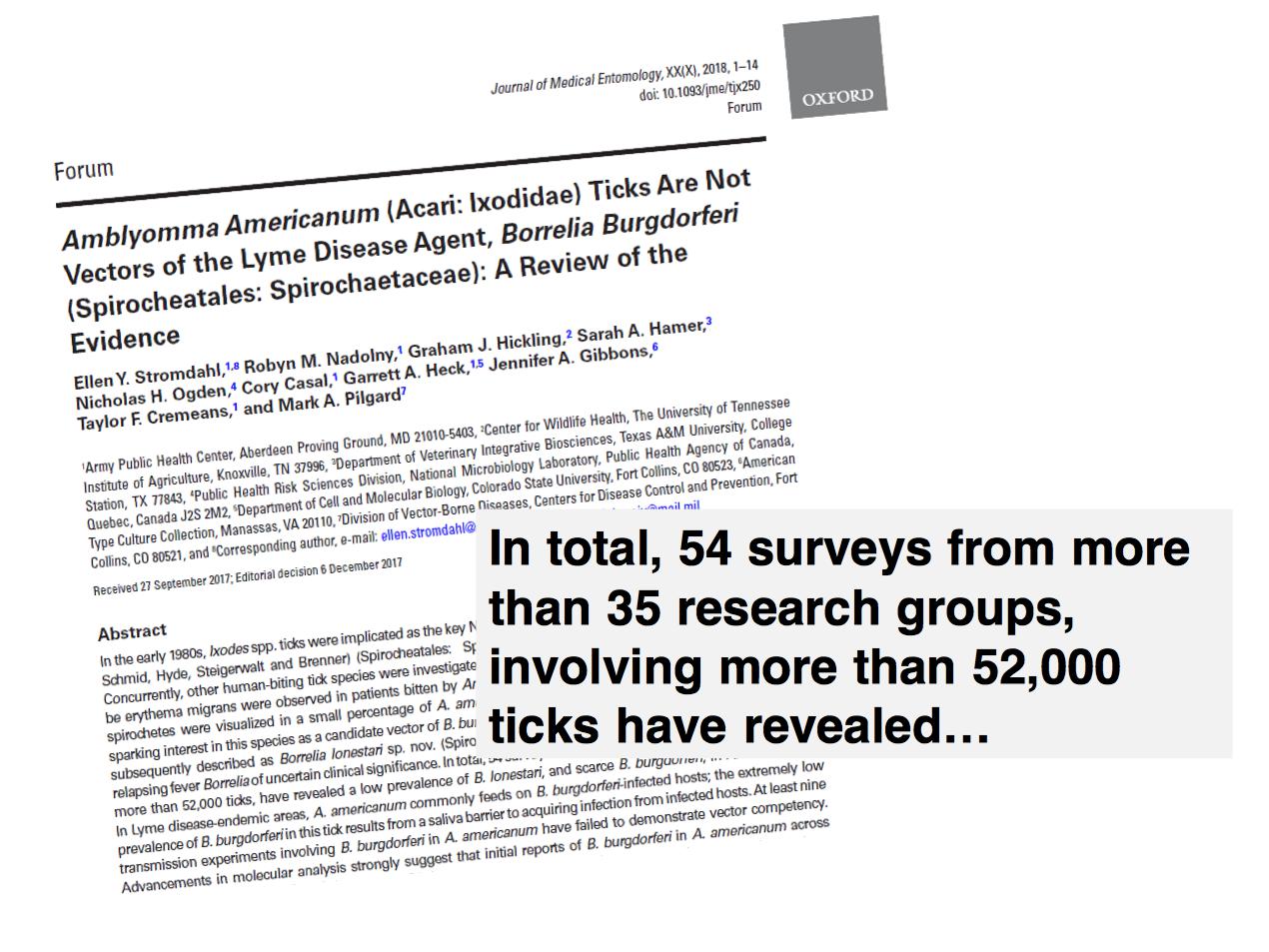Feb 1, 2018
A new paper out in the Journal of Medical Entomology presents a review spanning 30 years of research and concludes that lone star ticks (Amblyomma americanum) do not transmit the bacteria that cause Lyme disease, Borrelia burgdorferi. Over the years, there were a handful of issues that created confusion about whether the bite of lone star ticks could infect humans and pets with Lyme disease. Insensitive lab testing incorrectly confused another germ that Lone star ticks do carry, called Borrelia lonestari, to be the Lyme bacteria. Borrelia lonestari do not cause Lyme disease, although they were once thought to cause a condition called Southern tick-associated rash illness (STARI), a disease often mistaken for Lyme because of the appearance of a similar rash. Research has since shown that B. lonestari is not responsible for STARI, but the cause remains unknown. Not only are lone star ticks not carrying the Lyme bacteria, but in fact their saliva is actually lethal to B. burgdorferi, literally destroying the bacterial cells on contact.
Still, the TickSmart approach is to never let your guard down when it comes to lone star ticks. They are aggressive biters and can transmit some nasty germs to people and pets, including various ehrlichia, and their bite appears to trigger an allergy to mammalian meat in some people. Check out our resources on the lone star tick, including where it is and when its active, as well as TickSmart actions to take to stay TickSafe. Be sure to submit a photo of any tick you encounter to TickSpotters for a fast, free ID and risk assessment; results are returned in about 24 hrs.
Read more about this research in Entomology Today.

